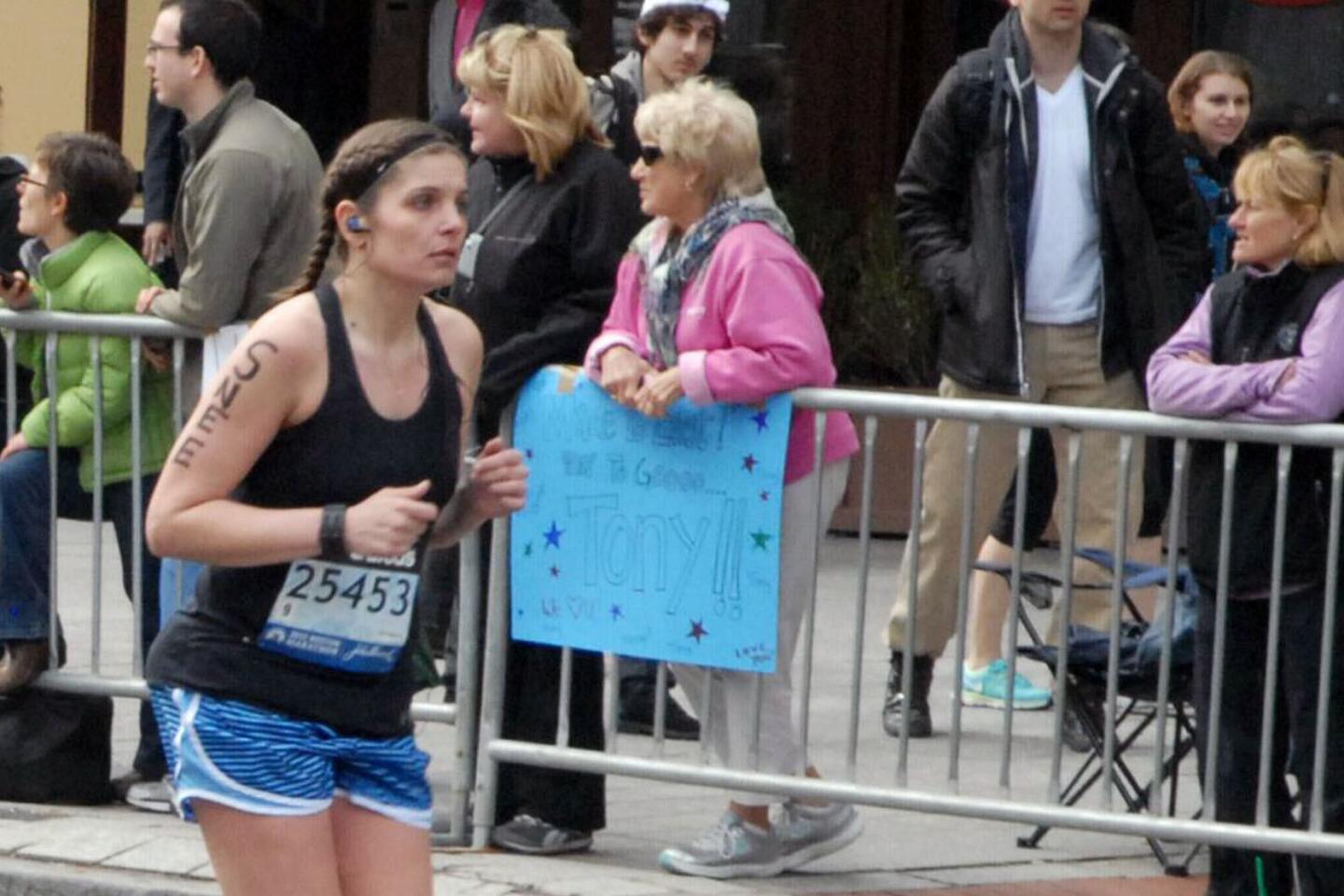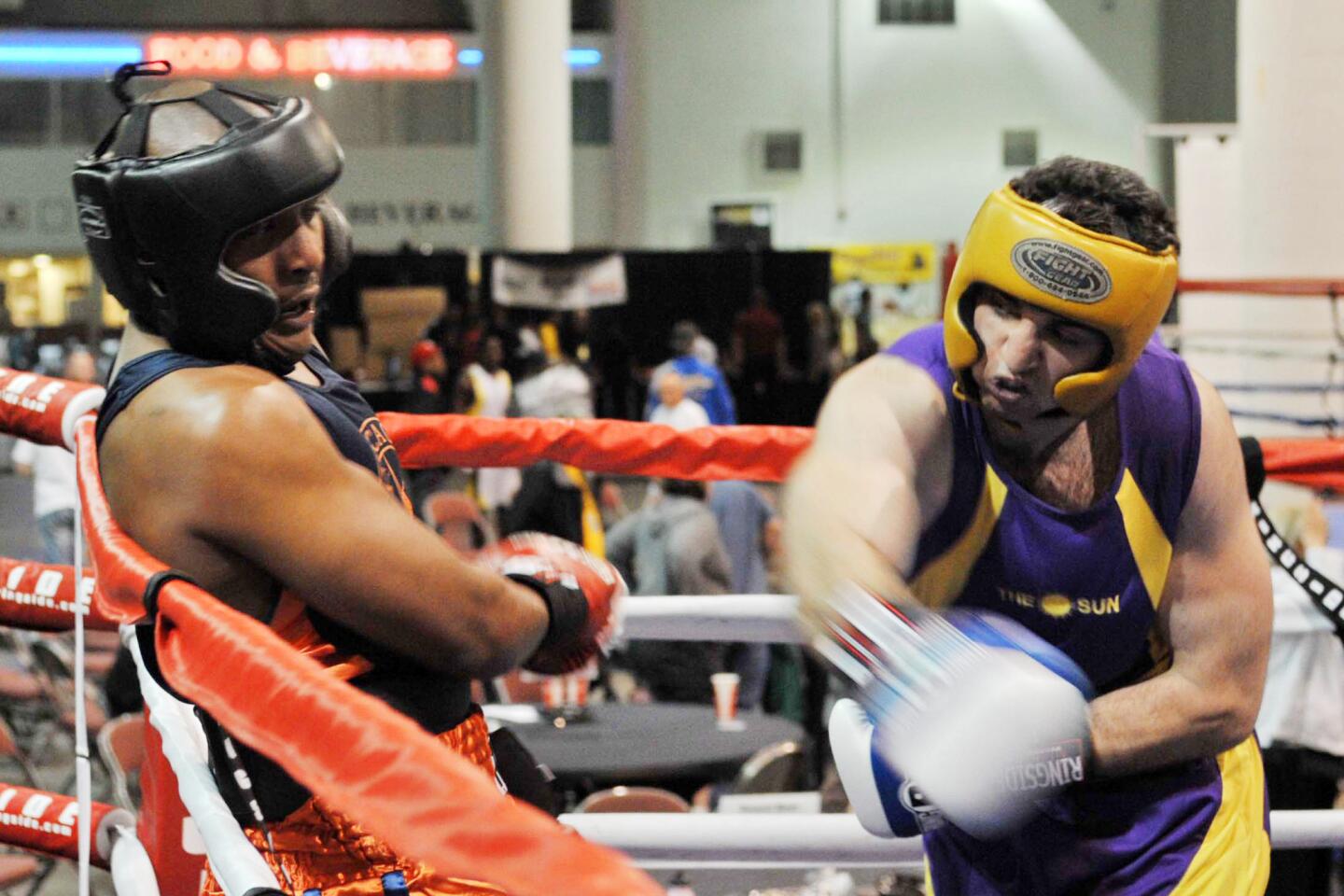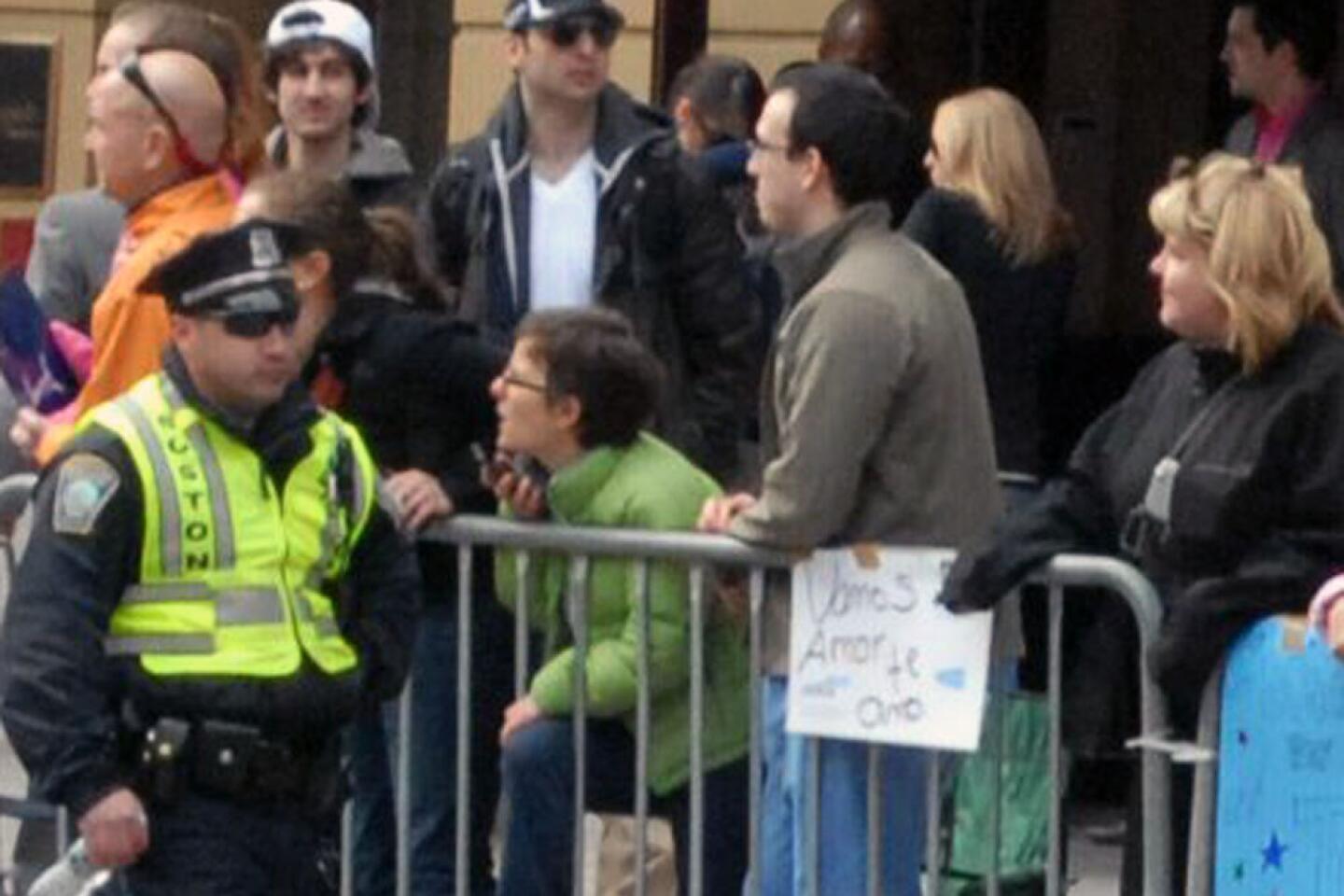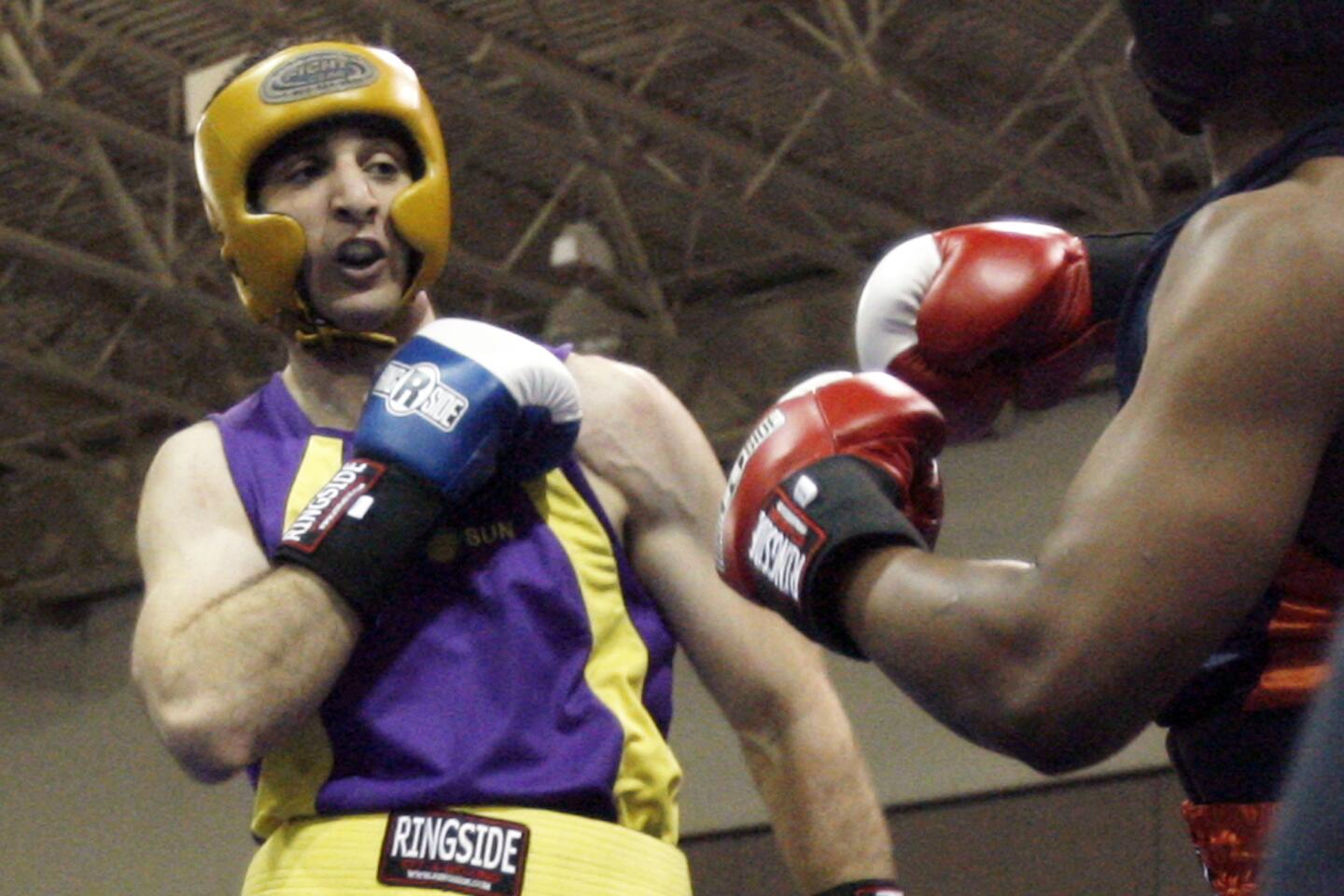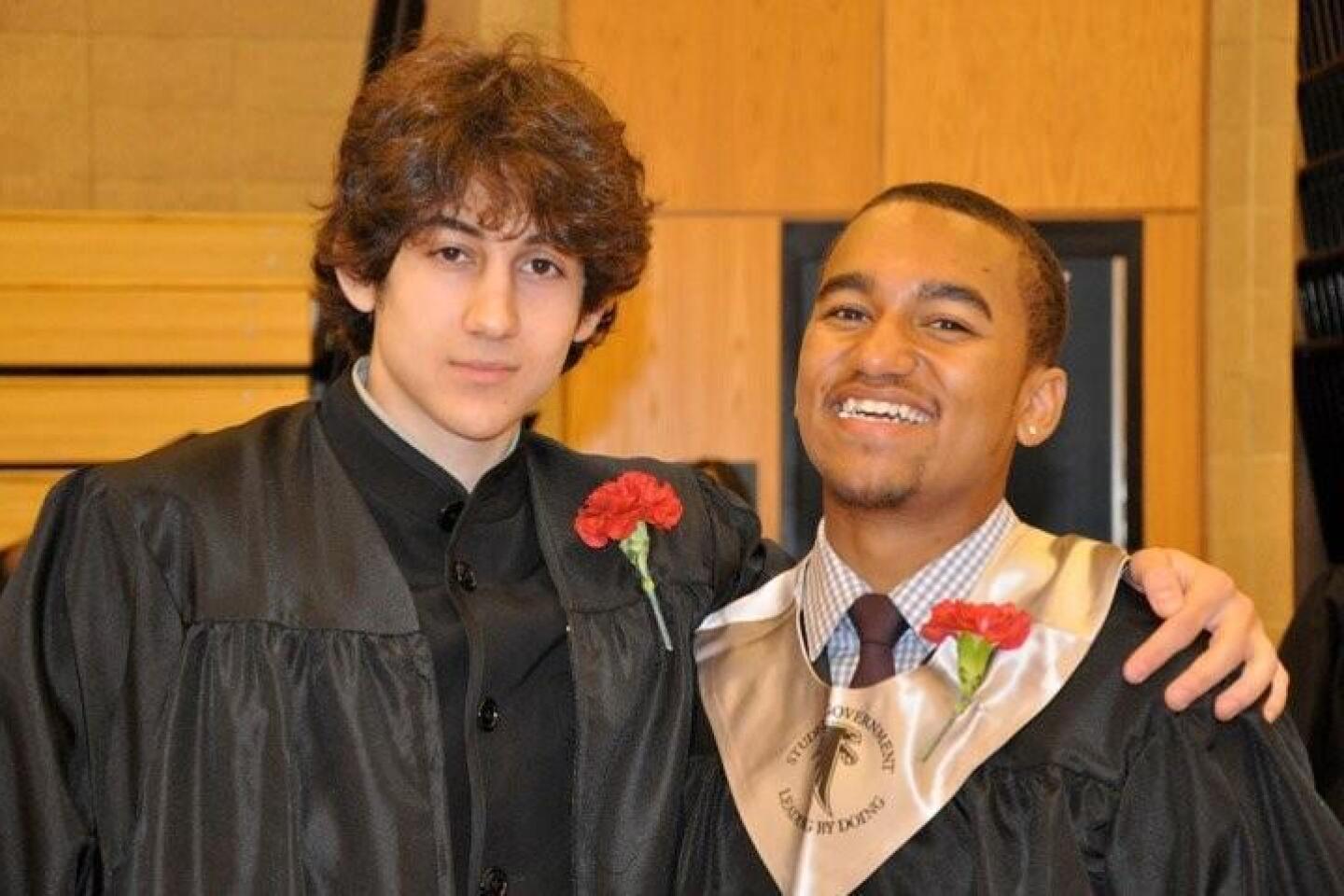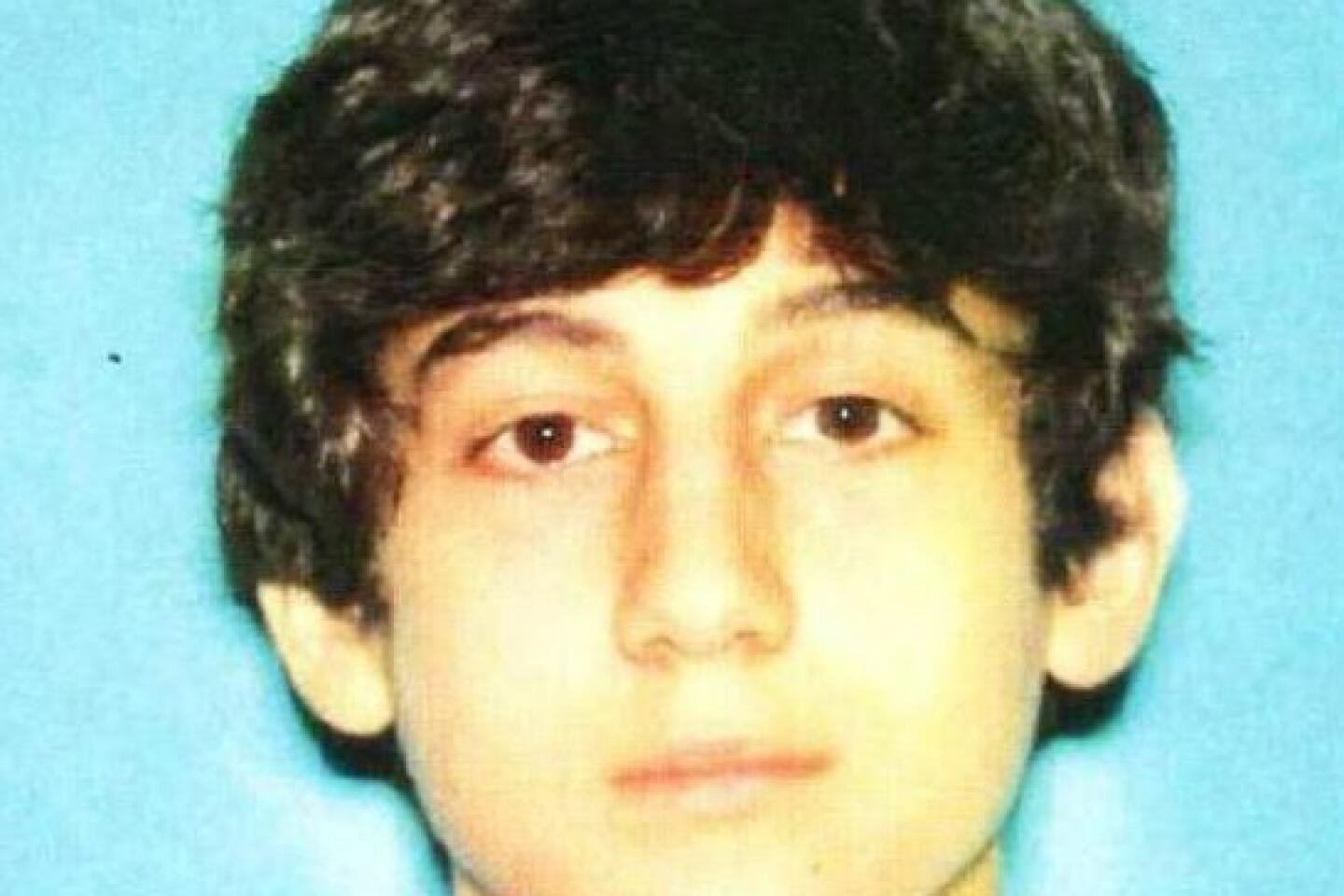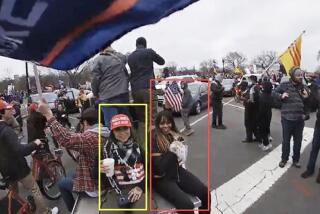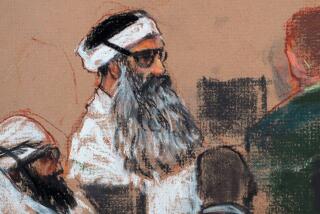Tsarnaev apologized for flipping off camera, Boston marshal testifies
A federal marshal testified Wednesday that Boston Marathon bomber Dzhokhar Tsarnaev apologized shortly after making an obscene gesture in a jail holding cell, deflating the government’s insistence that he remains defiant and unrepentant for helping to carry out the terrorist attack two years ago.
Prosecutors earlier in the trial showed the jury a picture of Tsarnaev flashing his middle finger at a surveillance camera while he was being held in a small cell awaiting his arraignment in July 2013. The government hoped the image would persuade a jury to sentence the 21-year-old Russian immigrant to death.
But defense lawyers, who are pushing for a sentence of life with no parole, brought to the witness stand Kevin Michael Roche, a longtime deputy U.S. marshal in Boston. He testified that Tsarnaev felt bad and apologized immediately to him and other guards. At the time, his face was still swollen from being shot in the mouth and jaw during his capture three months earlier.
Roche said they warned Tsarnaev, who was then 19, that they would not tolerate that kind of behavior. They asked him whether he was going to continue to be a problem prisoner.
“He said no,” Roche said. “He said, ‘I’m done. I’m sorry.’”
Tsarnaev was found guilty last month. Now the defense case in the penalty phase of the trial is winding down, and his lawyers are trying to soften and humanize their client before the jury of seven women and five men.
Roche said that other inmates have caused much more serious problems in courthouse holding cells compared with what Tsarnaev did.
“You name it,” Roche said. “Attempted suicides. Inmate-on-inmate assaults. They flood the toilet. They act out verbally and physically to each other, to anyone.”
Also testifying was Mark Bezy, a retired federal Bureau of Prisons official who ended his career as warden at the federal death row in Terre Haute, Ind. Now a private prison consultant, Bezy spoke of the harsh, solitary confinement conditions at the federal supermax prison in Colorado, the nation’s toughest penitentiary, where terrorists like Tsarnaev are assigned if given life sentences.
They end up on H Unit, a special security section, where 27 inmates currently are housed in 34 cells, all on lockdown, he said. “It’s the most restrictive prison in the system,” Bezy said. “The inmates will be there forever.”
Inmates get only a few 15-minute phone calls a month, and only with immediate family members. Calls are recorded and “live-monitored” by FBI and prison officials. Parents, siblings, spouses and children can visit, but there is no physical contact allowed, and they speak by phone through security glass, with the inmate locked into a small booth.
There is no contact with journalists, he said. Mail is restricted to immediate family members, and all mail is opened, checked and read. They cannot communicate with other prisoners outside H Unit.
On Twitter: @RickSerranoLAT
More to Read
Sign up for Essential California
The most important California stories and recommendations in your inbox every morning.
You may occasionally receive promotional content from the Los Angeles Times.
